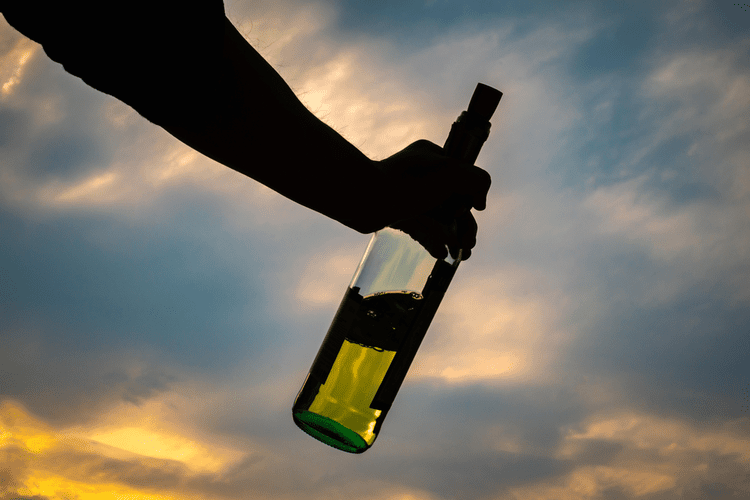How to Achieve Sobriety Without AA: 8 Powerful Strategies
Try to incorporate exercise into your daily routine, even if it’s just a short walk. Additionally, make sure you’re getting enough sleep, as lack of sleep can worsen mood and anxiety. Regular exercise can help improve your mood and reduce anxiety. You can also try talking to a therapist or a trusted friend about your emotions.
Resilience: Building Strength in Early Recovery
One of the biggest debates in the recovery world is about whether or not you can stay sober without AA. ” I think this is important to talk about, and share some thoughts about. Alcoholics Anonymous helps alcoholics stop drinking — and live a better life — one day at a time.
How To Qualify For Inpatient Physical Rehab?

You can try to avoid the conversation, but it’s good to have a response ready in case that’s not possible. If the question comes from someone you know well, you may want to say that drugs or alcohol became a problem for you, so you’re staying away from them. If you don’t know the person well, simply saying you have to get up early the next morning or you quit for health reasons should be enough. At some point in your recovery, you’ll feel stressed out, whether it’s major stress (like losing a job) or minor stress (like running late for an appointment). When things like this happen, find a sober friend or loved one you can talk to for support. And keep your schedule loose enough that you have time for group meetings and other things that can help you through rough stretches.
Resources
Alcohol detox involves safely removing alcohol from your system, managing withdrawal, setting goals, and building support for a successful recovery process. Explore the alcohol rehab success rate and understand how effective treatment is in helping individuals achieve long-term recovery. Our team at Reflections is here to help Alcohol Use Disorder you along this journey.
The SMART Recovery is a self-help support group for people who want to abstain from drugs, alcohol, or other substance abuse practices. Medications in alcohol abuse cases help those who want to reduce their drinking habits or stop entirely by reducing the urges in them. For those struggling with drug or alcohol abuse, AA and its sister groups are some of the most popular programs for getting sober. Knowledge is power when it comes to understanding the impact of alcohol in our lives. Take the time to educate yourself about the physical, emotional, and psychological effects of alcohol abuse. Dive into the science behind addiction, read personal stories from others who have walked a similar path, and discover the benefits of living alcohol-free.
- They’ll motivate us to keep going when things get rough, provide useful insights, and, most importantly, cheer us on along the way.
- According to a report from the National Institute on Alcohol Abuse and Alcoholism (NIAAA), nearly 30 million Americans aged 12 and older are currently struggling with an alcohol use disorder.
- When I started getting sober, I didnt spend time listening to the Big Bookers beat the 12 steps into my head.
- When you decide to get sober, you will discover that there are many different routes to recovery.
Can you stay sober without AA?
For example, it is more effective at treating cocaine and opioid addictions than it is for tobacco and polydrug use (use of multiple substances). Check with your health insurance provider, ask friends for referrals, or browse therapy directories like Psychology Today and GoodTherapy. The program is based around the Twelve Steps to help its members achieve complete abstinence from alcohol use.
- Ketamine’s detection in a 12-panel drug test varies by test type and metabolism, with urine tests showing it for 2-4 days and hair for up to 90 days.
- And keep your schedule loose enough that you have time for group meetings and other things that can help you through rough stretches.
- While it’s still crucial to lean on your loved ones and meet routinely with your therapist, there are daily practices you can put into place to foster a sober lifestyle on your own.
- These days, science-based therapeutic approaches provide practical coping strategies, support, and understanding of AUD.
SMART Recovery
It also gives you a sense of purpose that can help you stay focused. You may want to start an exercise routine — exercise releases brain chemicals called endorphins, which can make you feel good. Or you might rather spend time volunteering for a good cause, like an animal shelter or children’s hospital.

For many years, the accepted options were to send folks to 30-day inpatient treatment or told them to go to AA. But there are other options, and as a society, we’re beginning to accept that those other options work. A primary reason 12-step works for so many people (in my opinion) is it sets you up with a new social scene, full of folks just like yourself.
It’s important to set boundaries for yourself and stick to them. This can include avoiding places or people that trigger your urge to drink or setting a limit on how much alcohol you allow yourself to consume. This may include therapy, medication-assisted treatment, or holistic approaches such as yoga and meditation. There are a number of benefits to consider when choosing an intensive outpatient program, the most important of which is the fact that results tend to be better. The program is designed to be more intensive and last for a longer period of time, compared to traditional AA programs.
How can I build a support system for staying sober without AA?
Making healthy lifestyle changes can be an effective way to maintain Sobriety. Engaging in regular exercise, eating a balanced diet, and getting enough sleep can all help improve overall physical and mental health. By seeking help, exploring alternatives, and using the right tools, you’re taking control of your health and stepping onto how to get sober without aa the path of recovery.
